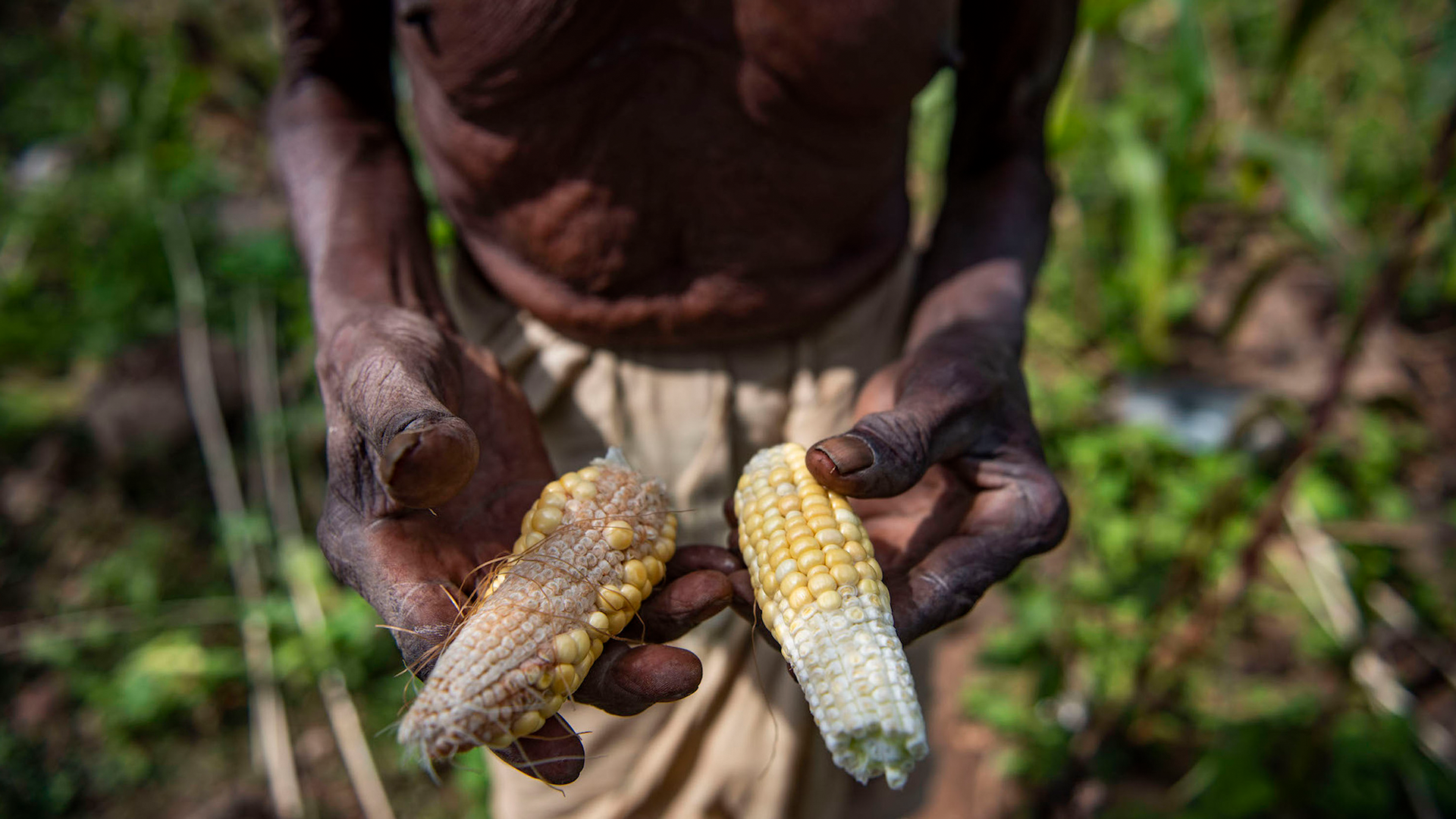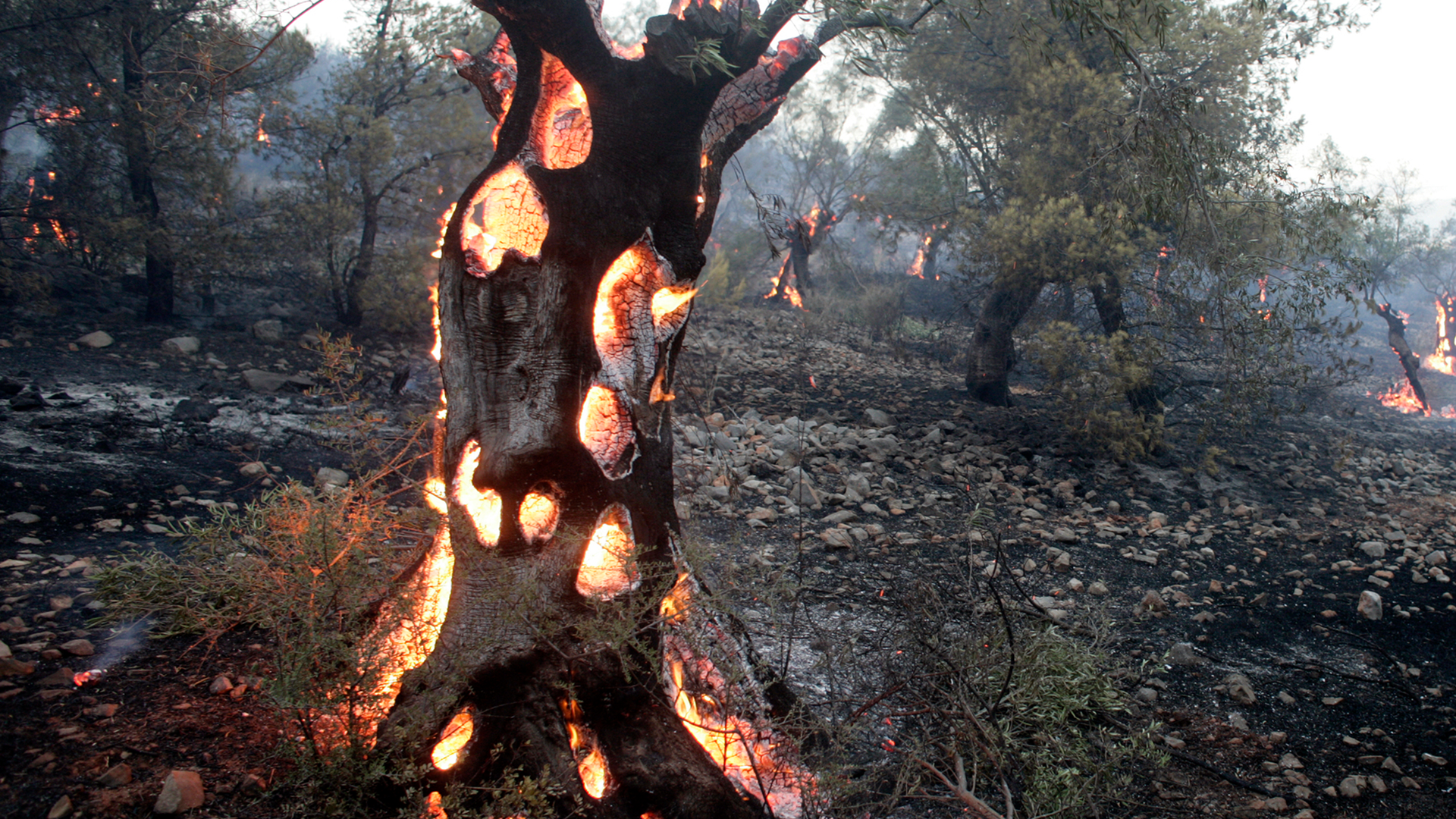Four reasons why health must be at the heart of climate action
From food security to the spread of infectious diseases, our health is intertwined with the planet’s. We outline some of the damaging effects of climate change on health, and why climate action cannot ignore the evidence.

Damaging effects of changing rainfall patterns on corn crops in India

Global heating is making floods, droughts and heatwaves worse. These extreme weather events are changing the environment and affecting the quality of food we can produce.
Each year, over 1 million people die because they don’t get enough vegetables in their diet. As temperatures continue to rise, environmental issues will make it more difficult to produce enough nutritious vegetables to feed everyone sustainably.
The evidence shows that over 500,000 more people could die by 2050 because climate change means we won’t have enough food available, especially fruits and vegetables.
One of the major effects of global heating is the rise in extreme weather events such as flooding and droughts. Rising temperatures also affect the patterns of rainfall and snow.
By making rain and wet weather conditions more unpredictable, climate change will increase the occurrence of water-borne diseases like cholera. Evidence suggests that weather changes will shift the spread of cholera, meaning we could see more outbreaks in new parts of the world.
Wet weather and extreme drought will also increase the risk of other infectious diseases, like malaria and dengue. This is because mosquitos that carry these infectious diseases will thrive in new conditions caused by climate change. Evidence so far suggests that people in lower-income countries are going to be disproportionately affected by these diseases.
Climate change has caused over a third of heat-related deaths since 1991. In 2019, research found that people aged 65 and older experienced 160 million more days of heatwave exposure than in 2016.
As the weather gets hotter, more people are likely to experience heat stress, heatstroke, and lung and heart diseases. Heatwaves also increase the risk of premature birth and stillbirth – and people in low-income countries could be at greatest risk.
One possible solution for reducing the health risks linked to rising temperatures is running air conditioners. But air conditioners already use almost 9% of global electricity, with the benefits mostly felt in wealthier parts of society.
We must find more sustainable and equitable ways to protect people from the health effects of global heating.
Air pollution has a devastating impact on our health, killing almost 9 million people every year. Two thirds of those deaths are directly linked to fossil fuel emissions from traffic and industrial power generation.
We can save 3.5 million lives each year if we stop burning fossil fuels and reduce pollution outdoors.
Research also shows that wildfires caused by heatwaves are adding to air pollution, with long-lasting and deadly effects. Without action, wildfires will increase in more parts of the world, meaning more people will die from lung and heart diseases.

Olive trees burn during a wildfire in Megara, Greece

Through research, we can help people adapt to a heating world and protect their health. We can use science to show the healthiest ways to reduce emissions, protecting lives and livelihoods. And we can help everyone understand how health is being affected by climate change to inspire more urgent action.
Because without global action to limit the damage caused by climate change, over 100 million people could be forced into extreme poverty by 2030. And this will also have serious implications on their health.
Governments and civil society must work together on a global strategy to find solutions for this urgent health challenge. And it must be informed by science.
Wellcome is working with people around the world, including those most affected by the effects of global heating, to support research and science-based solutions.
Over the next five years, we’re going to fund new research to help us understand how climate change is affecting health. By collecting better data about climate and health, we can identify areas for action.
We’re attending the 26th UN Climate Change Conference (COP26) to connect and collaborate with people from government, industry and academia to push for a strategy that combines climate action and health.
Climate change is one of the most urgent health challenges of our time. Ahead of COP26, we outline some of the damaging effects of climate change on health, and why climate action cannot ignore the evidence.